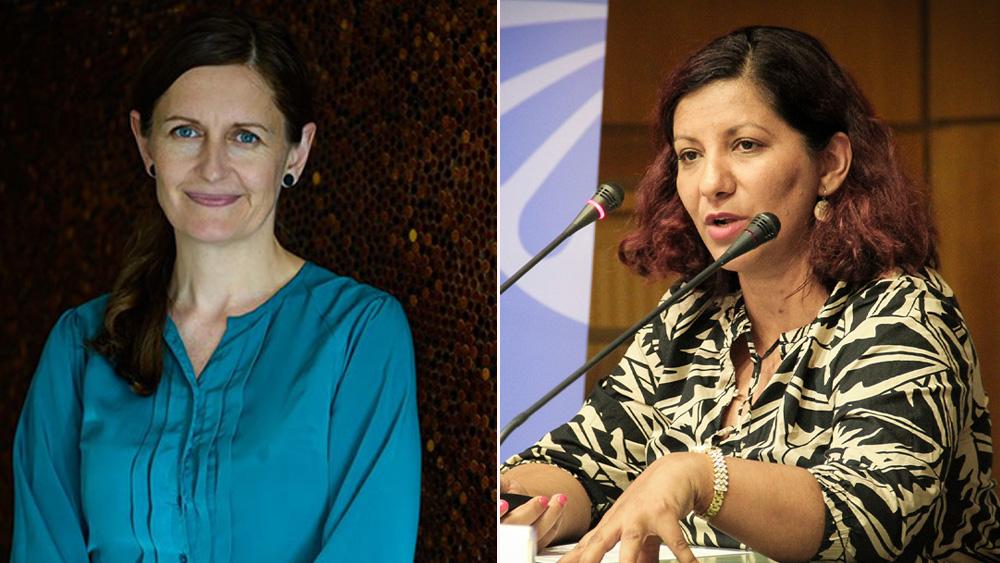Czech Govt Commissioners for Roma Minority Affairs and for Human Rights condemn racist remarks by vice-mayor about Romani children

Czech Government Commissioner for Roma Minority Affairs Lucie Fuková considers the remarks made by the Vice-Mayor of the Municipal Department of Ostrava-Přívoz, Alena Pataky (Association of Dissatisfied Citizens - ANO) about how Romani children are "equipped genetically" to be unacceptable and insulting. Czech Government Human Rights Commissioner Klára Šimáčková Laurenčíková considers it unacceptable and unethical to attribute the failure of Romani schoolchildren to their ethnicity or predestination.
Both commissioners told the Czech News Agency (ČTK) that instead of being segregated in the schools, disadvantaged children must be given support, and that if Czech society desegregates it will have an economic benefit. News server Romea.cz reported on the racist remarks made by the vice-mayor in an interview for news server Okraj.cz.
Among her other comments about segregation in the schools in her municipal department, Pataky said of Romani people that their “mentality… has not changed since the 13th century because of their absolutely different equipment, genetically speaking”, adding that education is not an aim for them and that they continue to live itinerantly. She also opined that Romani schoolchildren would not be able to handle the tempo of instruction should they be reassigned to unsegregated schools and that arranging a schoolbus to help them commute would cost too much.
“Any remarks which label Romani children and determine on the basis of their ethnicity that they might have a lower potential to achieve a good education and fulfill their professional dreams are unethical and unacceptable, from my perspective. Remarks about some sort of predestination of a group to perennially be successful or unsuccessful intensify entrenchment and misunderstanding in society,” the Czech Government Human Rights Commissioner told ČTK.
Šimáčková Laurenčíková also stressed that all children have the same rights. According to Commissioner Fuková, many Romani people have never had an opportunity to attend schools that were not segregated or intended for special needs education, but the situation is slowly transforming.
“The remarks by Madame Vice-Mayor are unacceptable, insulting and incomprehensible. I would expect more of an effort from her to understand the depth of these problems and the obstacles which are faced by Romani pupils in education. Does anybody seriously believe that their longstanding unequal treatment in the schools is a consequence of their genetic conditioning? Romani children do not feel they are accepted by anybody in some schools. They have to face stereotypes and prejudices from some teachers, their fellow pupils and others,” Fuková told ČTK.
Šimáčková Laurenčíková noted that children’s results in school are strongly influenced by the milieu in which they grow up. Schoolchildren from impoverished families living in excluded localities need more support in nursery school, primary school and secondary school.
“The idea that everybody needs the same approach [in education] irrespective of their handicap or their disadvantage was proven to be mistaken long ago. If we were to look at the support for children using wheelchairs through that same lens, it would certainly seem absolutely absurd to us to expect the same [physical] performance from them as from everybody else and not to work with the fact that they need special tools to master certain tasks,” the Czech Government Human Rights Commissioner said.
According to Šimáčková Laurenčíková, there is a need for the school system to adapt to the children, not the other way round. Children should effectively be allowed to learn at their own pace and should also experience acceptance and success at school.
In addition to such individualized, positive approaches to education, the Czech Government Human Rights Commissioner also mentioned providing access to after-school programs, lunches and transportation free of charge as important components of equal treatment. According to a website produced by the PAQ Research organization called Desegregace.cz, during the 2020/2021 school year there were 136 primary schools in the Czech Republic where more than 34 % of the pupils were Romani.
In 77 of those schools, Romani children represented more than half of the school population, in 32 schools Romani children represented more than 75 % of the school population and in 17 schools Romani children represented more than 90 % of the school population. According to data from the ombudsman, roughly 12 % of the 35,000 Romani schoolchildren are instructed in special needs schools or special needs classes for children with mild mental disability.
Just 1.3% of non-Romani children are instructed in special needs schools or classes for children with mild mental disability. In 2007, the European Court of Human Rights found the Czech Republic had reassigned 18 Romani children to special needs schools and had violated their right to education and discriminated against them on the basis of their ethnicity by so doing.
In September 2016, the inclusion of all children with special needs into mainstream classes was launched in the Czech Republic.